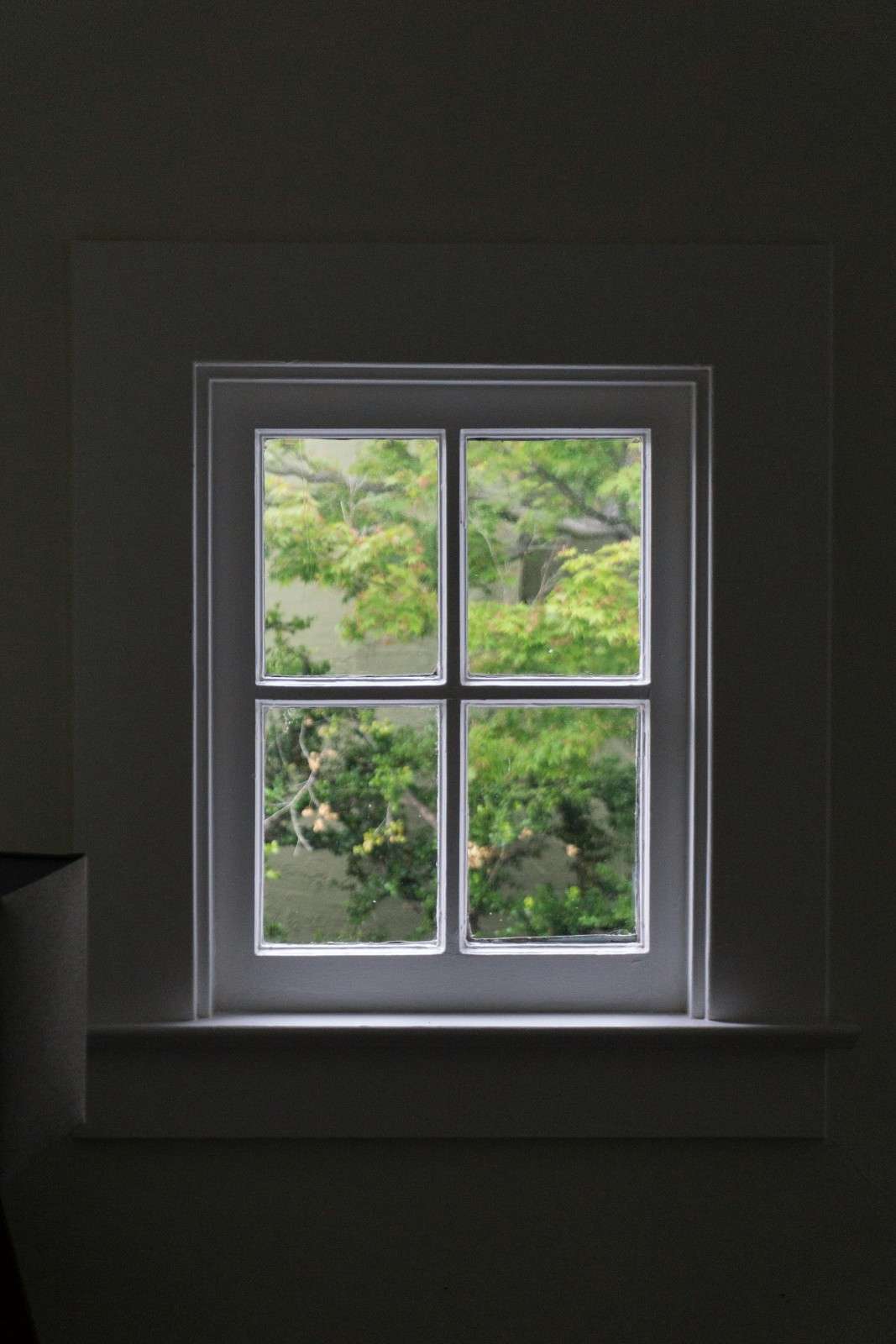Last updated on February 28th, 2024 at 09:59 am
Your windows play a vital role in maintaining your home’s temperature and comfort. Therefore when looking at new window installation, the UK Window Energy Rating (WER) comes into play.
Understanding this rating system is crucial, especially when you’re considering double glazing, uPVC windows, or any other type of window upgrade.
In this guide from Warmable, we will help you understand the Window Energy Rating and explore its significance in making your home more energy-efficient.
What Is the UK Window Energy Rating?
The UK Window Energy Rating is a standardised rating system used to assess the energy performance of windows. Just like the energy labels you find on household appliances, the WER label provides information about the energy efficiency of a window. It helps homeowners make informed decisions when choosing windows for their homes.
The WER system calculates a rating for windows, ranging from A++ (the most efficient) to G (the least efficient). This rating is determined based on several factors, including the window’s U-value, solar heat gain, and air leakage. The overall aim is to assist consumers in identifying energy-efficient windows that can contribute to reduced energy consumption and lower energy bills.
Why Should You Consider the Window Energy Rating When Choosing Windows?
When it comes to enhancing the energy efficiency of your home, your choice of windows can make a significant difference. The WER system provides valuable insights into the energy performance of windows, making it easier for you to choose the right ones. By selecting high WER-rated windows, you can enjoy lower energy bills, enhanced comfort, and a positive impact on the environment.
Here’s why you should consider the WER when selecting windows:
Lower Energy Bills
Windows with higher WER ratings are more energy-efficient, meaning they help keep your home warmer in the winter and cooler in the summer. As a result, you’ll rely less on heating and cooling systems, leading to reduced energy consumption and lower energy bills.
Enhanced Comfort
Energy-efficient windows maintain a more consistent indoor temperature, ensuring that your home remains comfortable year-round. You won’t experience uncomfortable drafts or temperature extremes, and your living spaces will be cozy and pleasant.
Environmental Benefits
By choosing windows with higher WER ratings, you contribute to environmental sustainability. Reduced energy consumption means fewer carbon emissions, helping combat climate change and promote a greener planet.
How Is the Window Energy Rating Calculated?
The WER rating is a result of a complex calculation that considers various factors. Here’s a brief overview of the key components used to calculate the WER:
U-Value
The U-value measures how effective a window is at preventing heat from escaping your home. Lower U-values indicate better insulation and, consequently, higher energy efficiency.
Solar Heat Gain
This factor gauges a window’s ability to capture and retain heat from the sun. A higher solar heat gain indicates that a window can help heat your home through solar radiation.
Air Leakage
Air leakage measures how airtight a window is. Windows with lower air leakage rates are more energy-efficient because they prevent warm air from escaping and cold air from entering.
Interpreting Window Energy Ratings
The WER rating system classifies windows from A++ to G, with A++ being the most efficient and G the least. Here’s how to interpret these ratings:
- A++ to A: These are highly energy-efficient windows with excellent insulation properties. They help maintain a consistent indoor temperature, saving on heating and cooling costs.
- B to C: These windows offer good energy efficiency and are a reasonable choice for most homes. They strike a balance between performance and affordability.
- D to E: Windows in this range are less energy-efficient and may lead to higher energy bills. They are still better than single-glazed windows but may not be the best choice for long-term savings.
- F to G: These windows have the lowest energy efficiency. They may result in significant energy loss and discomfort.
Benefits of Choosing High WER-Rated Windows
Opting for windows with superior WER ratings brings a host of advantages:
- Reduced Energy Consumption: High WER-rated windows keep your home warmer in winter and cooler in summer, reducing the need for heating and cooling systems. This leads to lower energy consumption and reduced energy bills.
- Lower Heating and Cooling Costs: With energy-efficient windows, you can significantly cut down on your heating and cooling expenses. Your home remains comfortable without relying on energy-intensive systems.
- Year-Round Comfort: Energy-efficient windows maintain a consistent indoor temperature throughout the year, ensuring your home is comfortable in all seasons.
- Environmental Sustainability: By using less energy, you lower your carbon footprint, contributing to environmental sustainability and supporting efforts to combat climate change.
Factors That Influence WER Ratings
While the WER rating primarily assesses the window itself, external factors can also influence a window’s performance. These factors include:
- Location: Your home’s geographical location plays a role in the effectiveness of your windows. Climate and exposure to weather conditions can impact the energy efficiency of your windows.
- Orientation: The direction your windows face can affect how much solar heat gain they receive. South-facing windows may receive more sunlight, while north-facing windows may receive less.
- Local Climate: The local climate and temperature variations can impact the energy efficiency of your windows. Areas with more extreme temperatures may require windows with different properties.
Balancing Aesthetics and Efficiency
Choosing energy-efficient windows doesn’t mean you have to compromise on style. There are various window types, including uPVC and double-glazed windows, that offer both energy efficiency and aesthetic appeal. These windows come in a range of designs, colors, and finishes, allowing you to find the perfect match for your home’s architectural style.
Tips for Maximising the Energy Efficiency of Your Windows
Selecting high WER-rated windows is a great start, but you can further enhance their performance. Here are some tips for maximizing energy efficiency:
- Proper Installation: Ensure that your windows are professionally installed to eliminate gaps or air leaks that can compromise their energy efficiency.
- Regular Maintenance: Keep your windows well-maintained to ensure they continue to perform optimally. Check for any damaged seals or weatherstripping and replace them as needed.
- Window Coverings: Use window coverings, such as curtains and blinds, to further insulate your windows during extreme weather conditions.
Are There Government Grants For Improving My Home Energy Efficiency?
Yes, there are government grants and schemes in place to encourage homeowners to improve their home’s energy efficiency. These initiatives aim to reduce carbon emissions, lower energy consumption, and make homes more comfortable. Some of the prominent schemes include:
- ECO4: Part of the UK’s Energy Company Obligation scheme, ECO4 runs from April 2022 to March 2026. It’s funded by energy suppliers and supports various energy-efficient home upgrades, such as double glazing and boiler improvements.
- Home Upgrade Scheme: Starting in April 2023, this initiative allocates £1.4 billion to enhance energy efficiency in homes with an EPC rating of D and below. It includes measures like double glazing and is expected to benefit over 115,000 homes in England, potentially saving tenants £220 to £400 annually.
- Home Energy Scotland Grant: Targeting low-income, energy-inefficient homes in Scotland, this grant offers up to £7,500 for energy efficiency improvements, which may include double glazing replacements.
If you’re considering upgrading your windows, let Warmable be your trusted partner in connecting you with window specialists in your local area. We’re here to make your path to energy-efficient living a seamless and rewarding experience.
Choose Warmable As Your Trusted Partner In Energy Efficient Window Installation
At Warmable, we understand that choosing energy-efficient windows is a significant decision for any homeowner. That’s why we’re here to simplify the process and ensure you make the right choice. Our platform connects you with experienced window specialists in your local area.
Whether you’re in need of double glazing, uPVC windows, or any other type of window upgrade, we’ve got you covered. By filling out a quick form on the Warmable website, you’ll receive quotes from qualified window installers in your area. This way, you can objectively compare offers and select the best deal that aligns with your preferences and budget.


